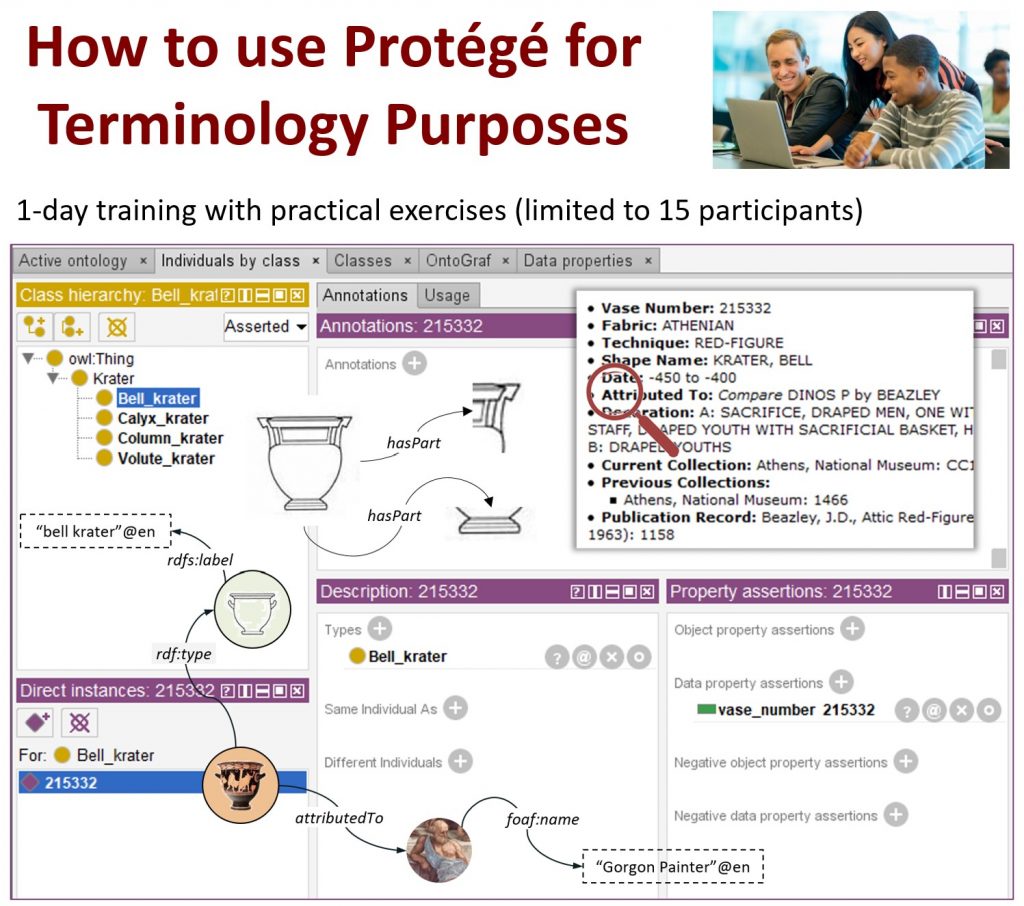Onsite & Online Training 2022 (in English)
« How to use Protégé for Terminology Purposes »
Dates: 1st June 2022
Schedule: from 9:00 am to 5:00 pm
Place: local information
Limited to 15 participants
Person in charge of the training
Pr. Christophe Roche
Université Savoie Mont-Blanc, Condillac Research Group (France)
University of Liaocheng, KETRC (China)
Université Savoie Mont-Blanc, Condillac Research Group (France)
University of Liaocheng, KETRC (China)
Presentation

Ontology, in the sense of Knowledge Engineering, is one of the most promising perspectives for Terminology today.
By proposing an « extralinguistic » representation of the conceptual system that makes up any terminology, ontology not only allows the operationalization of terminologies for information processing purposes (specialized translation, semantic and multilingual search engines, knowledge management, etc.), but also renews the discipline of Terminology in its foundations, principles and methods, hence offering new possibilities.
The problem is then the construction of the ontology.
Protégé is the most commonly used ontology editor. Free and open-source, it is supported by a huge and strong community. It therefore seems natural to use Protégé for the construction of the ontology. A first and simplest approach is to consider the terms as labels on classes structured in a hierarchy (subsets) without the need to define these classes more precisely.
The problem becomes more complicated if we want an explicit representation of the terms and a more precise definition of the classes. Indeed, the concept theories in terminology and ontology (knowledge engineering) are not always compatible, e.g. ISO standards (1087 and 704) and Description Logic.
These questions will be addressed during this one-day course and illustrated by practical works on the example of ancient Greek vases.
PS: Participants are asked to bring their laptop.
Objectives of the training
Participants will acquire the theoretical and practical skills necessary to build an ontology and terminology in Protégé.
Target audience
Linguists, Terminologists, Translators, Librarians, Information Scientists, Digital Humanists, Cultural Heritage Experts, Computer scientists, Knowledge engineers…
Training Fees:
Student: 25 €
Academic: 50 €
Other/Industrial : 100 €
Academic: 50 €
Other/Industrial : 100 €
